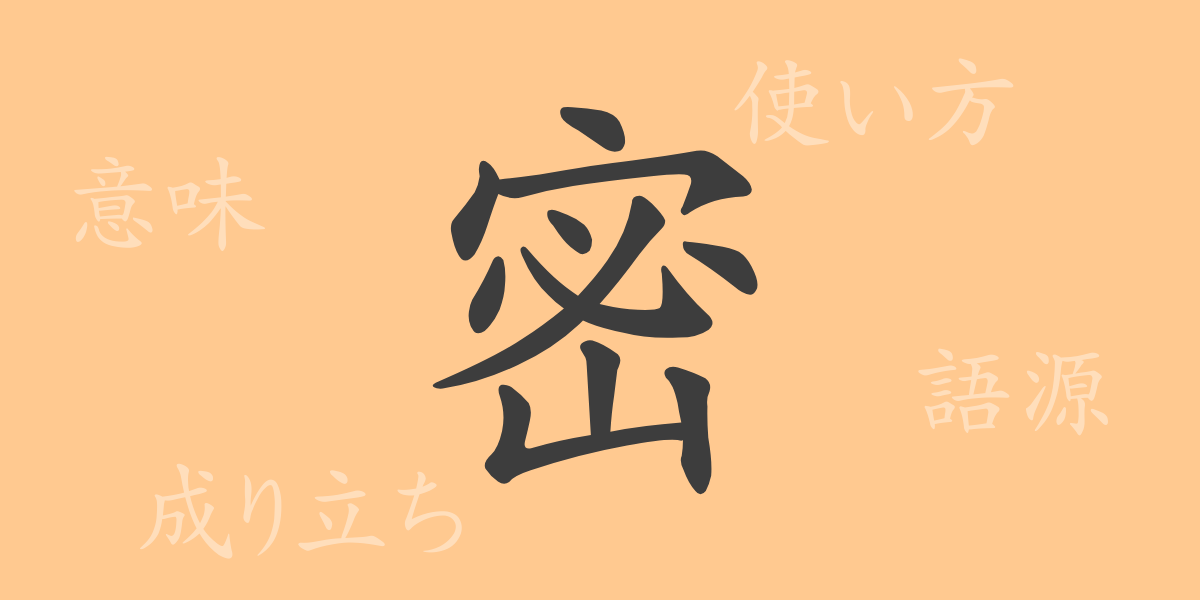“`html
Japanese has a rich vocabulary to accurately express emotions and situations. The kanji (Chinese character) “密” (mitsu) is often used to convey concepts deeply rooted in our daily lives. In this article, we delve into the charm of “密” (mitsu), unraveling its origin, modern usage, and even idioms and proverbs that feature this character.
Origin of 密 (mitsu)
“密” (mitsu) evolved from ancient Chinese pictographs. Originally, it derived from a picture representing a bird hiding in the mountains, and it came to signify hiding and secrecy. Over time, this kanji (Chinese character) has uniquely developed across various cultures and languages, and in Japanese, it has settled into words with nuances like “hisoka” (secretly) and “kossori” (stealthily).
Meaning and Usage of 密 (mitsu)
“密” (mitsu) is used in words like “秘密” (himitsu – secret) and “密接” (missetsu – close), conveying meanings such as hidden, intimate, and close. Additionally, it appears in terms like “密室” (misshitsu – closed room) and “密談” (mitsudan – private talk), referring to information or situations shared in limited spaces or among limited people.
Reading, Stroke Count, and Radical of 密 (mitsu)
The kanji (Chinese character) “密” (mitsu) has the following basic information:
- Reading: On’yomi (音読み) as “ミツ” (mitsu), Kun’yomi (訓読み) as “ひそか” (hisoka)
- Stroke Count: 11 strokes
- Radical: 宀 (ukanmuri – roof radical)
Idioms, Proverbs, and Words Using 密 (mitsu) and Their Meanings
There are numerous idioms, proverbs, and words that include “密” (mitsu). For example, “秘密” (himitsu) means a hidden fact, “密会” (mikkai) means a secret meeting, and “密告” (mikkoku) means to secretly inform. Additionally, “密室” (misshitsu) refers to a room sealed off from the outside, and “密度” (mitsudo) indicates density or concentration of a substance.
Summary of 密 (mitsu)
The kanji (Chinese character) “密” (mitsu) is an indispensable element in expressing the covert imagery suggested by its shape and the intimacy of matters. Its use in Japanese enriches the nuances of words and makes communication more delicate. We hope this article has helped you appreciate the multifaceted charm of “密” (mitsu).
“`

























